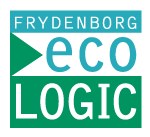Expert and Efficient Water Quality Consulting
Our clients desire our expertise to help them solve their problems and comply with regulations applicable to streams, lakes, wetlands, springs, and estuaries. We pride ourselves on providing focused services to large and small organizations in the private, public, and nonprofit sectors.
Permitting and Compliance
Numeric Nutrient Criteria (NNC) Compliance – Application of Chapters 62-302.531 and 62-302.532, F.A.C, including requirements of the “Implementation Document”, for determining compliance with NNC.
We are experts in NPDES permitting and reasonable assurance studies, as well as Water Quality Based Effluent Limit (WQBEL) studies. Includes determination of exceptions to NNC and implementation of all components of the Rule’s hierarchical approach.
Site-Specific Alternative Criteria (SSAC) – Application of Chapter 62-302.800, F.A.C, for development of alternative water quality criteria, including Type I, II, and III SSACs.
Use Attainability Analyses (UAA) – Following Chapter 62-302.400, F.A.C., and the “Process for Reclassification of Florida’s Surface Waters”, we provide the sampling, analysis, and report preparation required for reclassifying surface waters, including the Class III-Limited category.
Stressor Identification Analyses (e.g. CADDIS) – Frydenborg Ecologic uses Stressor ID analyses following the EPA CADDIS method to determine the causal pollutant for complicated urban systems so that appropriate restoration action is taken.
Assessment and Restoration
Environmental Monitoring – Frydenborg Ecologic specializes in gathering appropriate biological and water quality data to assist in our client’s compliance. Biological data typically includes fauna measured using the FDEP Stream Condition Index (SCI) or a biorecon. Flora is measured using techniques such as the Rapid Periphyton Survey (RPS), Linear Vegetation Survey (LVS), and Lake Vegetation Index (LVI). Water quality sampling is often conducted in parallel to biological sampling, and includes measures for nutrients, chlorophyll, and other parameters.
Wetlands – Frydenborg Ecologic provides wetland delineation services and assesses wetland health using the Uniform Mitigation Assessment Method (UMAM). We use the Wetland Condition Index (WCI) assessment method to evaluate wetland biological health for compliance with NNC.
Mine Reclamation and Stream Restoration – When proposed mining will disturb aquatic habitat, we characterize the current physical, biological, and hydrological status of the system so that not only can similar habitat be set aside for mitigation, but so that post mining reclamation will restore a functionally improved system. As part of stream geomorphological characterization and restoration, we use the Rosgen and Keifer classification methods.
Technical Support
Scientific/Policy Review – Frydenborg Ecologic provides reasoned and objective analysis on a range of topics, from proposed regulatory rules, to Minimum Flows and Level studies, to effectiveness of Best Management Practices.
Expert Witness – Qualified as an expert witness in: the statistical evaluation of water quality and biological data; biology; ecosystems; quality assurance procedures; wetlands ecology, including Everglades flora and fauna; quality assurance and quality control, including field sampling and laboratory analysis methodologies; evaluation of water quality and biological data, including statistical evaluation, and evaluation of aquatic biological communities; and the application of scientific principles to experimental design, regulatory compliance and the establishment of water quality criteria.
Quality Assurance (QA) Support – We provide training on and interpretation of the QA Rule (Chapter 62-160, F.A.C.) requirements, field Standard Operating Procedures (DEP SOPs), field audits, and data usability analyses.
Study Design – Frydenborg Ecologic develops scientific studies that will not only provide a definitive answer for regulatory decision making, but do so in an efficient and reasonable manner. We are well versed in tools such as Geographical Information System (GIS) and a variety of statistical analyses in order to clearly communicate results from our study design.
Microbial Source Tracking
A large amount of bacteria listings for water bodies are the result of type 1 error. The counts of fecal bacteria used by regulators are attributed to humans, yet are in actuality shed by most wild animals, and can even live in sediments. Successfully answering questions about fecal bacteria sources relies on a well designed study.
Frydenborg Ecologic staff are familiar with the latest sequence based technologies that can be used to establish the source of fecal bacteria, such as QPCR and NGS, and know the proper way to design studies so as to minimize cost while answering this complicated question.
